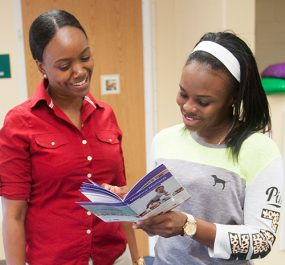Identifying Program Champions
Champions, at both the state and clinic level, can help promote and support the program.
State-Level Champions

Missouri found it helpful to have two champions at the state level: one within the state WIC agency and one who could help answer questions about child development and why the program was important.
- The state WIC agency champion helped to recruit clinics and provided technical assistance when agencies or clinics had questions about implementation.
-
- When Missouri moved toward statewide implementation (in 108 agencies and more than 200 clinics), the state WIC champion spent 2–4 hours per week supporting the expansion.
- For expertise on child development, Missouri WIC looked to the University of Missouri for support.
CDC’s Act Early Ambassadors (www.cdc.gov/ActEarly/Ambassadors), pediatricians, other primary healthcare providers, and child development specialists from universities or other organizations can also be asked to help support your developmental monitoring program. And because a successful program will identify children who may be referred to early intervention services, engaging leadership from the state’s early intervention service-providing agency (IDEA Part C agency) or Child Find program could also be helpful.
Clinic-Level Champions
“For a voluntary project like this, it’s critical to have a clinic champion to keep the momentum going. This work is too important to families to let fizzle out.”
Bridgette Delgman-Yawberry
WIC District Nutritionist, MO
Identifying a champion at each clinic is also important. The clinic-level champion can
- Support training and implementation;
- Help other staff resolve problems;
- Orient new staff to the program;
- Ensure materials are readily available; and
- Provide feedback and encouragement to staff.